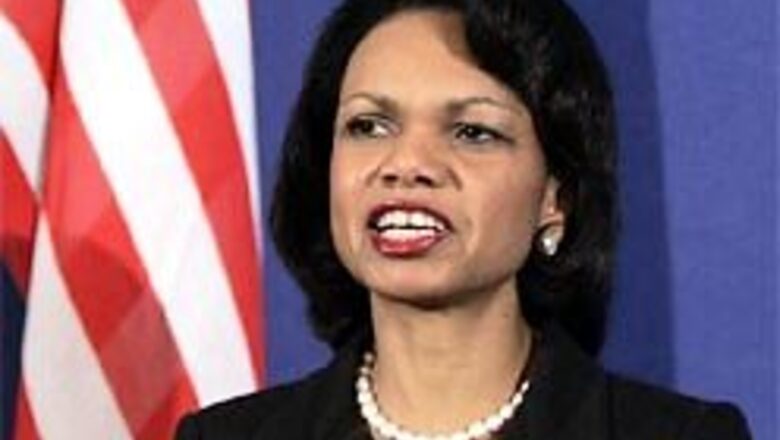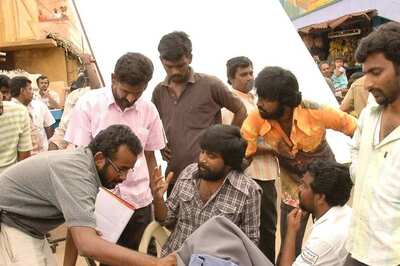
views
Prestwick (Scotland): US Secretary of State Condoleezza Rice offered an unstinting endorsement of Pakistan's military leader, a key ally in the fight against terrorism, and said the world expects to see Pakistan hold democratic elections next year.
''There has to be, the world expects there to be, democratic, free and fair elections in Pakistan in 2007,'' Rice said on Monday, en route to a meeting on Tuesday with Pakistani President General Pervez Musharraf.
Musharraf seized power in the military coup in 1999 and has refused to give up his Army uniform.
Rice also plans to meet on Thursday with counterparts from the Group of Eight industrialized nations in Moscow, where the topic is expected to be Iran's disputed nuclear program.
Musharraf became an unlikely ally of the Bush administration following the Sept. 11 attacks, when he pledged cooperation against terrorists who passed easily between Pakistan and the Taliban stronghold in Afghanistan.
''Pakistan has come an enormously long way in a period of four years, an enormously long way,'' Rice said during a news conference aboard her plane. ''We are fortunate there too that you have a leadership that is committed to putting Pakistan on a course toward moderation rather than a course toward extremism.''
Rice had even stronger praise for Afghan President Hamid Karzai, who has criticized Pakistan for not doing enough to go after terrorists along the mountainous border between the two nations.
A clearly frustrated Karzai last week also criticized the US-led coalition's anti-terror campaign in his chaotic country, deploring the deaths of hundreds of Afghans and appealing for more help for his government.
''This is an extraordinary leader and we're going to back him and back him fully,'' Rice said.
''When he has problems we're going to sit with him and we're going to find ways to resolve those problems. But any implication that anybody thinks that he is somehow not up to the job or not living up to his responsibilities is simply false, she added.
The Bush administration considers Karzai and Musharraf, along with the influential and relatively moderate Iraqi Shiite cleric Ali al-Sistani, as the ''indispensable men'' of post-September 11 foreign policy for their ability to hold Islamic extremism at bay.
Musharraf faces little political opposition within Pakistan, but lives under constant threat of assassination.
Karzai is increasingly embattled, hard pressed to extend his political control into many regions of Afghanistan and facing a resurgence of the radical Taliban movement toppled by US forces four years ago.
Pakistan has complained unsuccessfully that it should receive the same civilian nuclear help the US intends to give India.


















Comments
0 comment